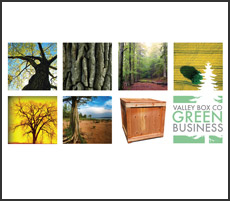In this age of being leaner, greener, and more efficient, and with recycling initiatives being implemented, your customers may have specific crating requirements to meet the needs of their end-users.
Switching to crating or a crating design that is reusable and/or serves multiple purposes offers many advantages to both the manufacturer and the buyer. Whether you call it sustainable, green, or reusable crates, anything that can be used repeatedly and for multiple purposes brings tremendous benefits to the planet and your bottom line!
Valley Box encourages companies to conduct crating reviews and set guidelines that make sense for your business! We've put together four ways to incorporate reusable crates into your business:
#1 Implementation
Implement a crating recycle plan. Almost all crate materials have recycled alternatives. Your crating supplier can provide choices.
#2 Reuse
Start the practice of reusing incoming crating materials by having employees sort and organize materials for other shipping events.
#3 ReDesign
Work with your crating provider to assess your design to reduce waste.
#4 Request
Asking your suppliers to conform to your crating requirements can help to reduce waste and drive down costs.
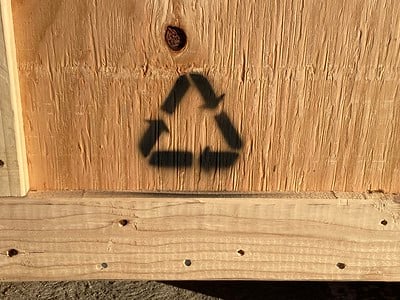
Since we've told you about the four ways to incorporate reusable crates into your business, consider all of the advantages it has to offer. The Reusable Packaging Association (RPA) says reusable crates offer Economic, Social, and Environmental benefits over single-use crates at all levels of the supply chain.
Environmental Benefits
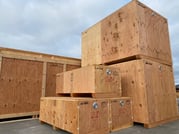 Prevents waste from entering the solid waste stream
Prevents waste from entering the solid waste stream- Reduces greenhouse gas emissions
- Requires less energy
- Supports source reduction
Economic Benefits
- Reduces labor costs and overall crating costs
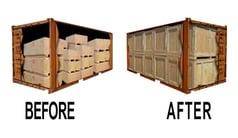 Improves transportation efficiency through standardized loads, resulting in fewer trips
Improves transportation efficiency through standardized loads, resulting in fewer trips- Reduced cost-per-trip by reducing fuel costs
- Reduces inventory by requiring less storage space
- All of these economic benefits result in a rapid return on investment (ROI)
Social Benefits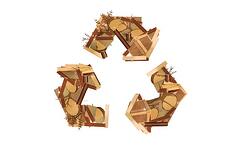
- Improves workplace efficiency and safety
- Recyclable at the end of its service life
|
Real-world example One such company that focuses on eliminating crating waste is Costco, which distributes a 16-page Specification Packet to all suppliers. Taking action against crating waste has been instrumental in lowering costs for the retail giant and ensuring that products arrive at the warehouse undamaged. The Packet includes Performance Requirements, Stacking Strength, Pallet Load Configurations, and much more. Costco has these specifications in place to drive out costs by eliminating excessive crates, handling, and corrugated waste. |
We at Valley Box completely agree with these types of policies. You can read more about our practices in our Green Business Packet available for download.


